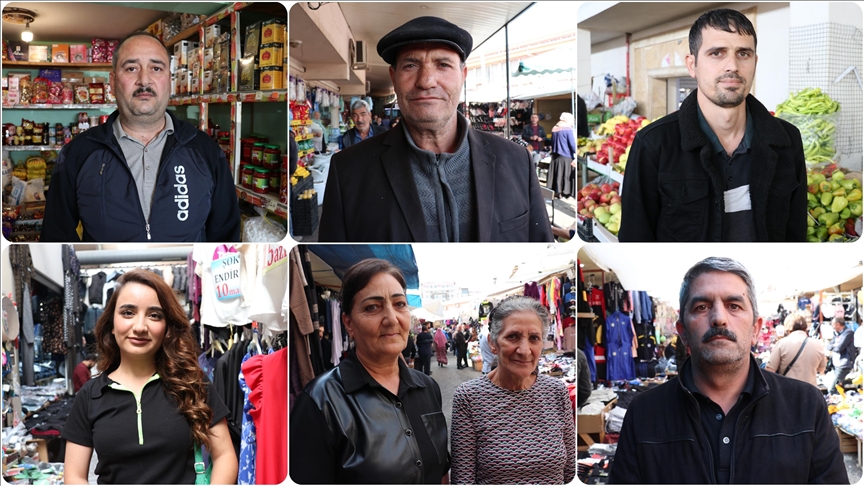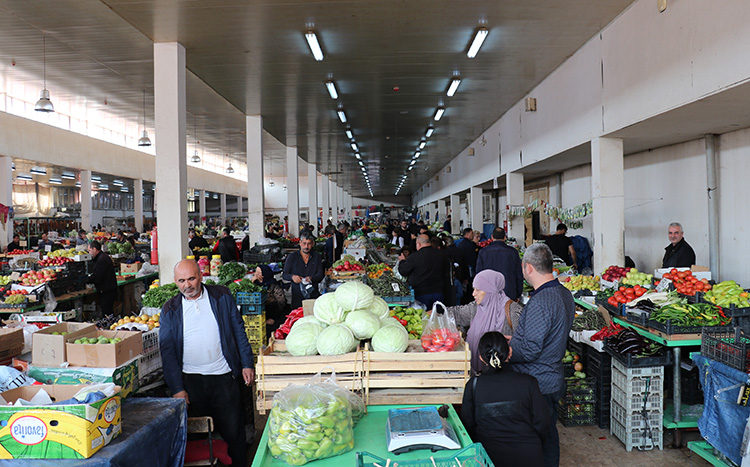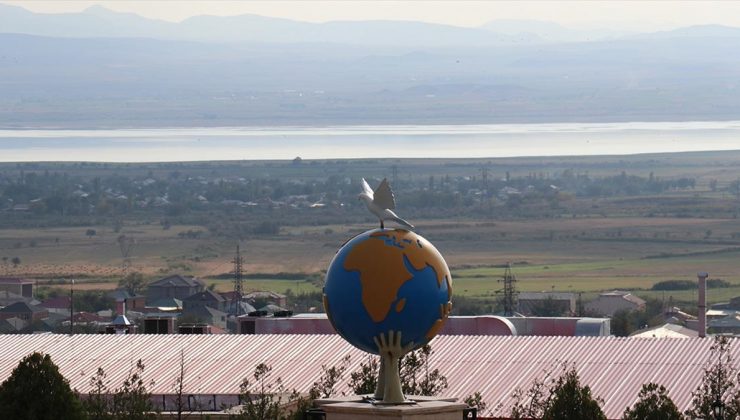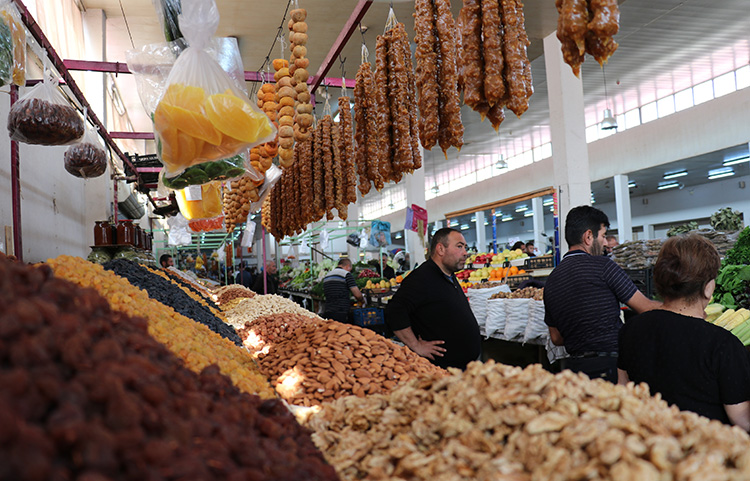
Residents of Nakhchivan believe that their lives will change with the advent of the Zangezur corridor
Residents of Nakhchivan believe that their lives will change with the advent of the Zangezur corridor
While residents of Nakhchivan have been dreaming of opening the Zangezur corridor for more than 30 years, they think that with the opening of the corridor, Nakhchivan will get out from under the "blockade" and the region will develop significantly.
Nakhchivan, whose population consisted of Azerbaijani Turks, remained within the borders of Azerbaijan, which declared its independence on May 28, 1918 after the Bolshevik revolution of 1917 in Russia.
Soviet power was established in Azerbaijan in 1920, but the Soviets ceded the Zangezur district, a piece of land between Azerbaijan and Nakhchivan, to Armenia. Thus, Nakhchivan's land contacts with other regions of Azerbaijan were interrupted.
Nakhchivan received autonomy under the Moscow Treaty signed between Turkey and the Soviet Union on March 16, 1921, and was left to Azerbaijan on condition that it would not be transferred to another state. Turkey has become a guarantor that Nakhchivan will remain an autonomous republic of Azerbaijan.
The lack of land connection with the western provinces of Azerbaijan is the biggest obstacle to the development of Nakhchivan.
Azerbaijan has agreed with the Tehran administration on the construction of a road and railway bridge that will connect Nakhchivan with the western provinces of Azerbaijan through Iran.
The AA correspondent asked the residents of Nakhchivan for their opinion on the opening of the Zangezur corridor.
"The opening of the corridor is the desire of the people of Nakhchivan and all Azerbaijanis"
Namik Hasanov, one of the shopkeepers of the Nakhchivan Bazaar, said that the corridor would bring cheapness and abundance to Nakhchivan: "The opening of this corridor is, first of all, the desire of the residents of Nakhchivan and the entire people of Azerbaijan. In Zangezur, one of the territories of Azerbaijan, they put up a big barrier between Azerbaijan and Nakhchivan. Now its opening (of the corridor) is a very good opportunity for the development of Nakhchivan," he said.
Hasanov stated that if the Zangezur corridor is opened, the customs duty on goods coming from Azerbaijan to Nakhchivan will decrease, and they will be able to freely make purchases from Azerbaijan, and said that they want "Nakhchivan to get out of the blockade."
"We have been waiting for this Zangezur for years. Turkey and Azerbaijan are integrating. The Turkic world is integrating. We would have a very good trade. Our Nakhchivan has been under blockade for 30 years," store owner Ali Huseynov said and noted that the opening of the corridor would be very good for them.
Noting that they traveled to Azerbaijan by air or through Iran and encountered difficulties, Huseynov said: "It will be very good if the corridor is opened. It will be 100 percent good. For all of us, for Turkey, for Azerbaijan, for Central Asia, for the Turkic world."
"(The opening of the corridor) would be good for all of us, for the entire Azerbaijani people. Very good. We are happy. It benefits us in all ways. It's good for us. We are happy. The roads will be open. It will be a round trip," Firengiz Prizade said, noting the positive aspects of the Zangezur corridor.
Sohrab Prisoylou, the owner of a store in the market, said that Nakhchivan has been under blockade for 30 years, and said: "The opening of the Zangezur corridor makes a lot of sense for us."
Stressing that it is difficult for them to go to Baku, Prisoylou said: "It is still difficult (to go to Baku). We're flying by plane. But when the railway is opened, it will be very good."
"This is what we have been waiting for for a long time"
Referring to the opening of the Zangezur corridor, Elmar Elimirzoev said: "This is actually what we have been waiting for for quite a long time. We really want this to happen. We will be very comfortable after the opening. We get through Iran, it's hard and painful. It would be nice if it opened soon."
"We have to go to Iran. Iran also has passport control. It's a little complicated. We are passing through two customs offices," Elimirzoev said, noting that they are having difficulties on their way to Baku.
Chinara Abdullayeva, who came to the market for shopping, said that it would be very good to open the corridor in question, and said: "We can easily go wherever we go and wherever we want.We don't always have to fly by plane. We will also drive back and forth in our regular private car."
Noting that they had difficulties on the way to Baku, Abdullayeva said: "We have difficulties. Because sometimes it happens that there are no flights. Or, when we travel overland, sometimes the Iranian border is closed and we can't go. We have to fly by plane. We are experiencing a lot of difficulties.Our path will get closer. There will be no question of closing roads."
"Zangezur is the land bequeathed to us by our ancestors"
Tamasha Mustafayeva, who hails from Zangezur and was forced to migrate from the land where she was born, said that it would be very good to open the Zangezur corridor, and said: "A beautiful homeland, beautiful places. I will go and see my homeland, and I will travel."
Khakani Guliyev, one of the shopkeepers of the bazaar, said that the corridor is of great importance from the point of view of history: "Zangezur is already the land bequeathed to us by our ancestors. This is a large piece of land that was taken from us and transferred to Armenia during the Soviet period. It is also a historical Turan road. I think that if we open the road to the Zangezur lands, it will develop not only Nakhchivan and Azerbaijan, but also all the Turkic peoples up to Central Asia."
Speaking about the economic contribution of the corridor, Guliyev said: "(The Corridor) will bring great benefits. Our goods arrive by rail. It comes at a lower price. Transportation becomes easier. The highway opens. The railway has been opened. It would be very beneficial for our people. Nakhchivan has been under blockade for more than 30 years."


